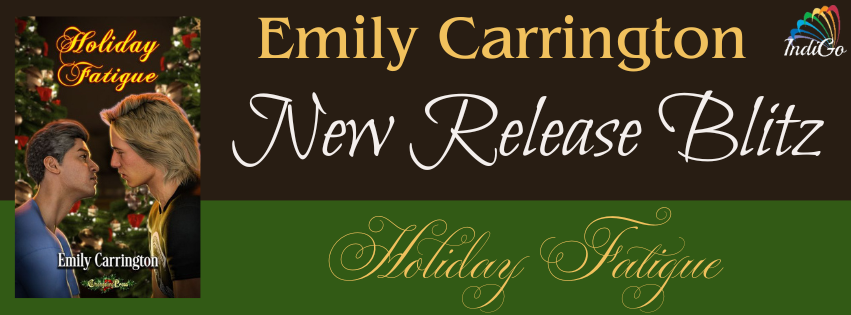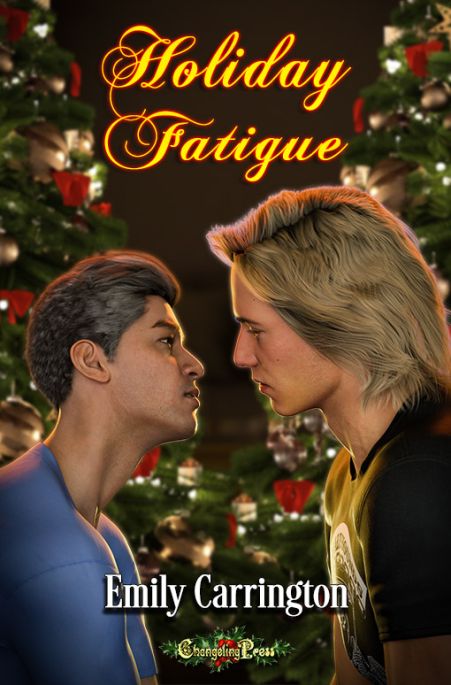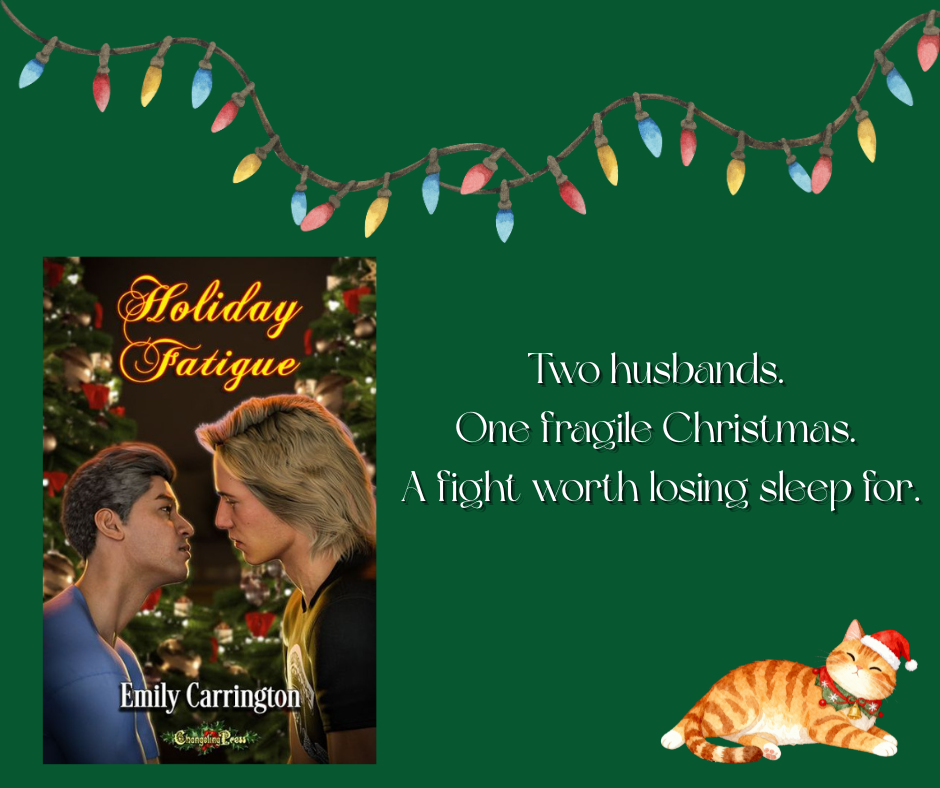Buy Links:
Amazon: https://www.amazon.com/dp/0778310906/keywords=magical%2Brealism
Barnes &
Noble: https://www.barnesandnoble.com/w/the-time-hop-coffee-shop-phaedra-patrick/1146709761
harpercollins: https://www.harpercollins.com/products/the-time-hop-coffee-shop-phaedra-patrick?variant=43812618010658
Bookshop.org: https://bookshop.org/p/books/the-time-hop-coffee-shop-original-phaedra-patrick/22162824
From The Time Hop Coffee
Shop by Phaedra Patrick. Copyright © 2025 by Phaedra Patrick. Published
by Park Row Books, an imprint of HarperCollins.
2005
MAPLE GOLD COFFEE COMMERCIAL SCRIPT
VOICEOVER: ‘Maple Gold is here for endings and new
beginnings . . .’
The scene opens with a young woman, Greta, standing on
the pavement, waving as a car pulls away. She’s holding a small cardboard box.
GRETA (WHISPERING): ‘Bye Mum.’
She turns to face a pretty white house, straightens her
back and smiles bravely. She’s ready to enter a new phase of her life—moving
into her first home.
The front door is ajar, and she enters a hallway, then a
sitting room. We can see there are more, bigger boxes sitting around the place,
sealed and ready to unpack.
VOICEOVER: ‘It’s here for the good times and the even better
ones . . .’
Greta looks apprehensive but takes a moment to take in
her new surroundings. She switches on the kettle and opens a cupboard,
disappointed to find it empty.
She spies her name written on the side of the box she
carried in and opens it. Inside is her old teddy bear and a jar of Maple Gold
coffee, a gift from her mum. Greta takes the jar out, becoming misty-eyed as
she makes herself a cup of coffee. Wrapping her fingers around the cup helps
her to feel more at home.
The doorbell rings, and she opens the door to find a
group of her new neighbors gathered outside. They present Greta with flowers
and another jar of coffee as a welcome present. It’s Maple Gold, of course.
They all laugh, and she invites them inside for coffee.
A CAPPELLA GROUP (SINGING): ‘You’re always at home
with Maple Gold.’
Chapter 1
Present
Day
GRETA PERKS LOVED three things in life more than
anything—her family, the thrill of performing, and a fine cup of coffee. When
she could combine all three, it was as satisfying as a frothy cappuccino on a
cold day. But recently, a happy home life and sparkling career seemed to be
slipping through her fingers.
‘I wish you could stay longer,’ she said, glancing between
her husband, Jim, and their daughter, Lottie, as coffee cups clattered in the
background. ‘Tonight’s important to me.’
She’d volunteered to be the guest speaker at Brewtique’s
monthly Coffee Lover’s Night Out, talking about her acting career. It had been
a while since she’d last performed in public, and her nerves were jumping
around like frogs in a pond.
Jim offered her a smile. ‘I wish we could, too. But I
promised Lottie I’d get her back to school.’ He passed Greta a shopping bag
like it was a peace offering. ‘Just brought a few things you might need . . .’
‘Talent show rehearsal,’ Lottie muttered, not looking up
from her phone. ‘Total waste of time.’
Greta and Jim shared a glance, a silent understanding of the
challenges of raising a fifteen-year-old together while living apart.
‘A talent show?
Sounds fun.’ Greta gave Lottie’s arm a quick reassuring rub. ‘What are you
doing? A show tune, or a monologue? Perhaps even a Shakespeare sonnet?’
Lottie shrugged a disinterested shoulder.
Greta’s spirits dipped a little. ‘Well, whatever you do, I
bet you’ll be great,’ she said.
‘We’ll grab a burger afterward, then I’ll drop her back at
your place.’ Jim opened his mouth slightly, as if wanting to say something
more. ‘Stay safe returning to your car tonight, okay?’
Greta nodded, hoping for a word of encouragement, perhaps a
‘good luck,’ ‘break a leg,’ or even a quick hug. But Lottie was already heading
toward the door.
Jim’s fingers lightly brushed Greta’s arm, but didn’t
linger.
Then he turned and followed their daughter outside.
Through the window, Greta watched as her family dashed
across the road without her. She smiled brightly and waved, even though her
stomach was twisting.
‘Drop her back at your place.’ The words stung like a
paper cut.
She and Jim were over four months into a trial separation,
with just a few weeks left until their self-imposed New Year’s Eve deadline. At
that point they’d agreed to make a final call on the future of their marriage.
It didn’t seem as clear-cut as Greta had hoped. What had
once felt like a simple decision—to try to rebuild their marriage or let it
go—now felt tangled with uncertainty. After almost twenty years together, was
she still in love with Jim? Was he still in love with her?
Greta peeked inside the bag, her
mood lifting when she saw Jim had brought her herbal throat lozenges, a new
notebook, and a spare pen.
Outside, the wet, grey pavement was
the same color as the inky November sky, and she suddenly craved a rich mocha.
Greta turned to face the room. In half an
hour, the place would hopefully be buzzing with people. She was determined to
deliver an entertaining talk, even if it wasn’t exactly her kind of coffee
shop.
She preferred cozy spaces where she could curl up with a
good book, sipping coffee from mugs the size of plant pots. The type of place
that served homemade rocky road and had a corner dedicated to board games.
Brewtique, on the other hand, had industrial-style light-
bulbs and blackboards showcasing quirky concoctions, such as rhubarb and
custard lattes. A pink neon coffee cup on the wall cast an eerie pink glow on
her face. The spindly branches of a Christmas tree on the counter looked like
they’d been pecked by crows.
Her long-time agent, Nora, had applauded Greta for spotting
Brewtique’s Facebook post asking for local speakers. ‘Putting yourself forward
shows brilliant initiative, darling. Well-done,’ Nora had gushed. ‘You never
know who might be in the audience. Any exposure could help give your career a
little boost. Plus, it’s a great way to plug your acting classes.’
A boost? Greta knew her career needed a defibrillator. If
one human year equals seven dog years, the same rule definitely applied to
actors out of the spotlight. She felt like her career had been on pause for too
long, and she was ready to hit Play again.
Greta missed the camaraderie on set, filming the iconic
Maple Gold coffee commercials she’d starred in with Jim and Lot- tie a decade
ago. Nothing compared to the soar of her senses when the director called,
‘Action,’ and everything clicked into place. She longed to find that spark
again, not just for herself, but in the hope of pulling her family back
together again.
If Greta was honest, she also
missed the attention. Champagne on ice in a silver bucket, fans queuing around
the block for her autograph, and the occasional limousine whisking her to grand
events had been cherries on top of the cake. Those memories felt almost unreal
now, as if they belonged to someone else.
The students she’d coached since
then seemed to enjoy her acting classes, but it wasn’t the same. Guiding
nervous amateurs through voice projection techniques or stage presence didn’t
give her the same buzz as stepping in front of a camera or an audience.
Hopefully, tonight would rekindle some of that feeling, proof she still had
something to offer.
The sound of dropped cutlery pulled her out of her thoughts.
Greta turned to see Brewtique’s owner, Josie, rushing around, a dusting of
flour in her hair. Meanwhile, her young pink-haired assistant, Maisie, dawdled
in a corner, glued to her phone.
‘Need a hand with anything?’ Greta called out.
‘Oh gosh, no.’ Josie shook her head frantically. ‘You’re the
talent. I’m just running a bit late with everything . . .’
‘Are you sure? I’ve already prepped for my talk.’
Josie bit her lip, tempted. ‘Well . . . setting up the
refreshment table would be helpful, while I get changed. I’ve just popped fresh
brownies in the oven. Maisie knows to keep an eye on them.’ She gave Greta a
pointed look. ‘She’s new here.’
‘Sure,’ Greta said, catching her drift. ‘Leave it to me.’
Greta set out coffee cups with vigor, arranged cookies on
plates, and laid out napkins. Her pulse quickened when she saw the time.
‘Maisie!’ she called out. ‘We need to hurry. There’s only fifteen minutes left
until showtime.’
The young woman barely raised her eyes. ‘Didn’t your family
once star in some coffee ads or something?’ she asked. ‘One day, I’ll get
discovered like that. Want to see my latest TikTok audition?’ She held out her
phone.
‘Yes, we starred in them.’ Greta briskly polished a spoon on
her apron. ‘I’ll look at your clip later. Now, please check all the glasses. Some of these are scratched, and
Josie said you’re in charge of the brownies...’
When Josie reappeared wearing fresh clothes, she glanced out
of the window and sighed. ‘Looks like we’ve got a smaller crowd than usual.’
‘How many are you expecting?’ Greta asked, joining her. ‘Six
or seven. I’ve just checked my messages and had quite a few cancellations.
Christmas is coming, and it’s the Strictly Salsa final on TV tonight.’
Greta chewed her lip. Disappointment was part of an actor’s
life—the rejections, the scathing reviews, and the occasional inappropriate
behavior from a director she’d once respected. She hadn’t expected a
theatre-sized crowd, but six?
‘An intimate gathering,’ she said with a nod. ‘I’ll make it
work.’
Josie welcomed the guests inside. When they were settled
down around tables with coffee and cake, she launched into her introduction.
‘Welcome to the monthly Brewtique Coffee Lover’s Night Out.
We’ve been fortunate to hear some incredible stories from our speakers this
year—conquering Mount Everest, training guide dogs for the blind, and a brain
surgeon who worked in war-torn countries. And tonight we’ve got the former star
of the Maple Gold coffee commercials. Let’s bid a warm welcome to our special
guest, Greta Perks.’
No pressure, Greta thought, smiling brightly as she
stepped forward.
‘G . . . good evening, everyone,’ she started, feeling
woefully out of practice. ‘Thanks for coming.
‘I’m going to tell you a story about how I became the face
of the Maple Gold coffee commercials. Yes, for ten years, I was the lady who
made you believe coffee could make your life perfect.’
A few chuckles rang
out, and Greta soon found her flow. She paced up and down, commanding the
little coffee shop as if starring in a West End theatre production.
‘Did you know that Maple Gold was born in 1950, as a humble
roastery in the back streets of London? Over the years, it became a household
name, beloved for its delicious blends and vintage appeal.’ She leaned in, as
if sharing a secret. ‘And who wouldn’t want to live in Mapleville, the idyllic
town from the commercials? The sun always shone, the grass was emerald green,
and the whole town thrived on cups of Maple Gold.’
She took out her phone and played the jingle.
When you wake at sunrise,
and open your eyes.
You’re ready to start your day,
the Maple Gold way.
You’re always at home with
Maple Gold.
From the faraway looks on a few faces, it seemed like
nostalgia was working.
‘I locked eyes with my love interest, Jim, when he painted
my garden fence in the commercial, and things went a bit further off-camera,’
Greta said with a wink. ‘We got married and then had Lottie, our own little
star. We were such a happy family, on-screen and off . . .’
She paused as a twinge of sadness crept in, like how bitter-
ness stays on the tongue after an espresso. A screech of metal chair legs
against wooden floorboards made her flinch.
A woman in the audience called out, uninvited. ‘Are you guys
still working?’
Greta blinked, the question taking her by surprise. ‘Yes,
everything’s going wonderfully,’ she said, feeling guilty at embellishing the
truth. ‘Jim’s still gracing the stage and screen,
Lottie’s currently
rehearsing for a school Christmas talent show, and as for me . . . well . . . I
run some excellent acting classes, if anyone is interested?’
A few seconds of silence followed before more questions flew
at her like arrows.
‘How’s Lottie?’
‘Where’s Jim?’
‘How do you feel about Maple Gold replacing you with a
different family?’
‘Does Lottie resent you putting her on-screen at such a
young age?’
‘Those are some great, um, deep questions,’ Greta said with
a swallow. She grabbed her notes, hurriedly trying to recover her thread. ‘I
think my talk will cover most of them . . . Now, where was I?’
Then, suddenly, the shrill scream of the smoke alarm pierced
the moment. Greta jumped and spun around to see smoke billowing from the oven.
Josie shouted out over the bleeping alarm. ‘Maisie. Did you
forget about the brownies?’
Maisie’s head snapped up, her eyes widening when she noticed
the grey clouds. ‘Oops.’
A flurry of activity broke out.
Maisie darted behind the counter and yanked open the oven
door, waving her arms as the grey smoke curled out. ‘It’s fine. Totally under
control.’
Josie grabbed her oven gloves and pulled out the tray. The
burnt brownies looked like steaming lumps of coal, and she tossed them into the
sink.
Greta rushed over to help, spinning on the tap so the
brownies spat and sizzled. She threw open the front door to let in some fresh
air, then grabbed a tea towel and wafted it in front of the smoke alarm until
it stopped. ‘Is everyone okay?’ she called out.
An elderly couple had
already put on their coats and scuttled outside. The remaining four guests had
drifted toward the buffet table, their focus now on cake rather than
conversation. Greta followed them, trying to salvage what was left of the
evening.
One man wrapped cake into a napkin and slipped it into his
pocket. A couple of women wearing matching blue anoraks conversed loudly.
‘I didn’t recognize Greta at first, did you? She’s put on
quite a bit of weight,’ one said.
‘I know. Age isn’t kind to some ladies,’ her friend replied.
‘Ahem.’ Greta stood beside them and picked up a cookie.
‘I’m forty-five and proud of it,’ she said, biting it into
it. ‘Worth every extra pound, don’t you think?’
The women paused with their cakes suspended mid-air, before
nodding sheepishly.
Greta attempted to spark interest in her acting classes, but
the attention was elsewhere, mostly on the kitchen, which looked like it had
been trampled by a herd of buffalo.
She joined Josie at the door, wearily bidding goodnight to
the guests as they filtered out.
‘Sorry everything didn’t go to plan. I can’t thank you
enough,’ Josie said. She handed Greta a brown envelope containing her small
fee. ‘I’m not sure I’m cut out to run a coffee shop . . .’
Greta mustered a tired smile. After tonight, she felt the
same way about performing in public.
She said goodnight, then called Lottie while trudging to her
car, leaving a message on her voicemail. ‘Hi, sweetheart. I’ll be home soon.
Hope your rehearsal went well.’
Rain pelted down, and Greta hunched her shoulders against
the cold. The streets were empty and quiet, and icy droplets snaked down her
neck, making her shiver. In the dark, she noticed a hunched figure approaching,
and Jim’s warning about staying safe echoed in her mind. She tried to swerve,
but the person bumped her arm.
Startled, Greta dropped her car keys and stooped to pick
them up. When she looked up, a woman in a long, dark coat stood over her. Her
face was part hidden by a voluminous hood, and long tendrils of her damp white
hair hung down. With a quick muttered apology, the stranger handed a piece of
paper to Greta and hurried across the road.
As she stood up, Greta’s heart thudded in her chest. Under
the dim street lamp, she uncurled her fingers and glanced at the flyer. It was
probably just a pizza menu, but the vintage-style design caught her eye. It
featured an illustration of a white rabbit and the words ‘Looking for the
Perfect Blend?’ Beneath it was an image of a jar with the label ‘Drink Me.’
She gripped the flyer tighter, unsure what it was even
promoting. A strange feeling of curiosity rippled through her body. Looking for
the perfect blend? In her life, she most certainly was.
She climbed into her car and tossed the flyer onto the
passenger seat. Sitting there for a moment, she flopped her head against the
steering wheel as the evening’s events raced through her mind. Was she ever
going to get her life back on track?
With a deep sigh, Greta turned the key in the ignition and
waited for the engine to rumble to life. The light from the street lamps
twinkled orange in the raindrops on the wind- screen, and she released the
handbrake.
It was probably just a trick of the light, but as Greta
pulled off the car park, she could have sworn the white rabbit on the flyer
gave her a wink.
Author Bio:
Phaedra Patrick is the bestselling author of several novels,
including The Curious Charms of Arthur Pepper, which has been
translated into twenty-five languages worldwide. Her second novel, Rise
and Shine Benedict Stone, was made into a Hallmark movie. An award-winning
short story writer, she previously studied art and marketing and has worked as
a stained glass artist, film festival organizer and communications manager.
Phaedra lives in Saddleworth, UK, with her family. Social
Links:
Author Website:
https://www.phaedra-patrick.com/
X: https://x.com/phaedrapatrick
Instagram: https://www.instagram.com/phaedrapatrick/
GoodReads: https://www.goodreads.com/author/show/14203653.Phaedra_Patrick
Facebook: https://www.facebook.com/phaedrapatrick












.jpg)








